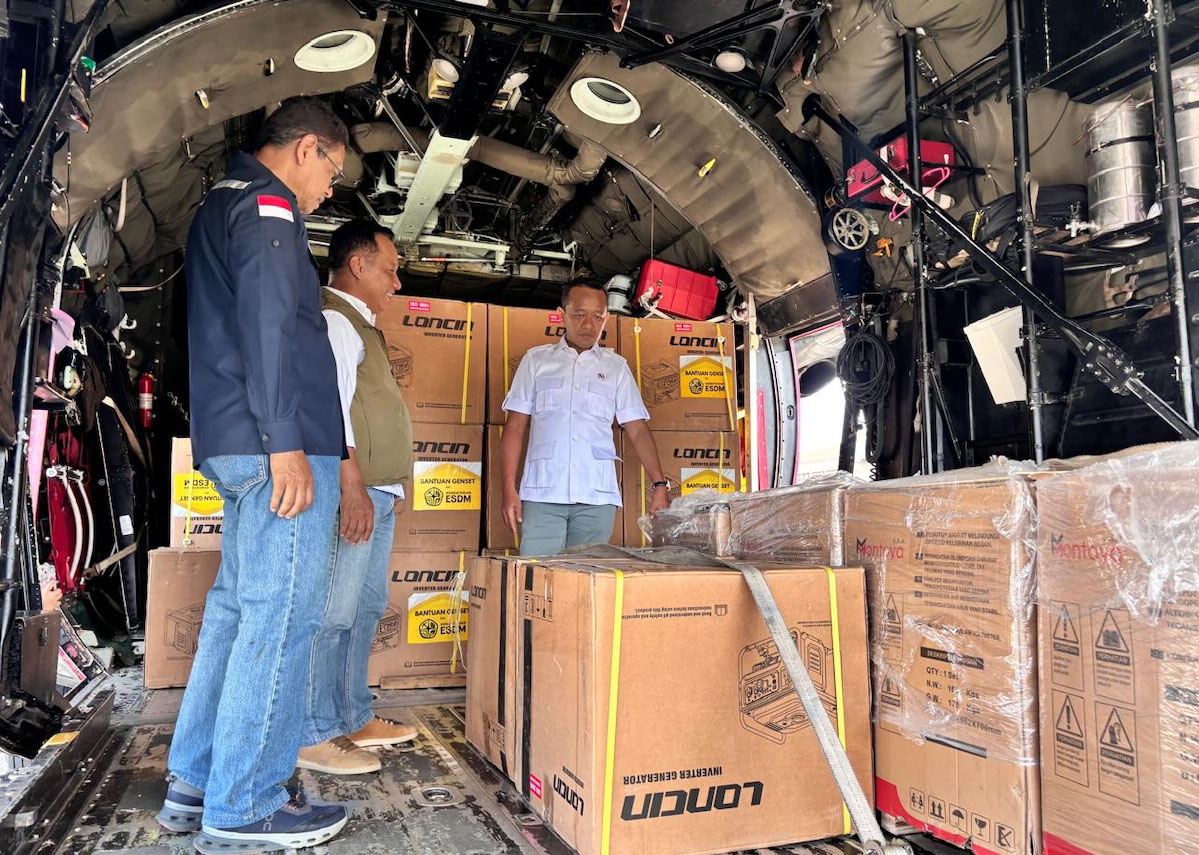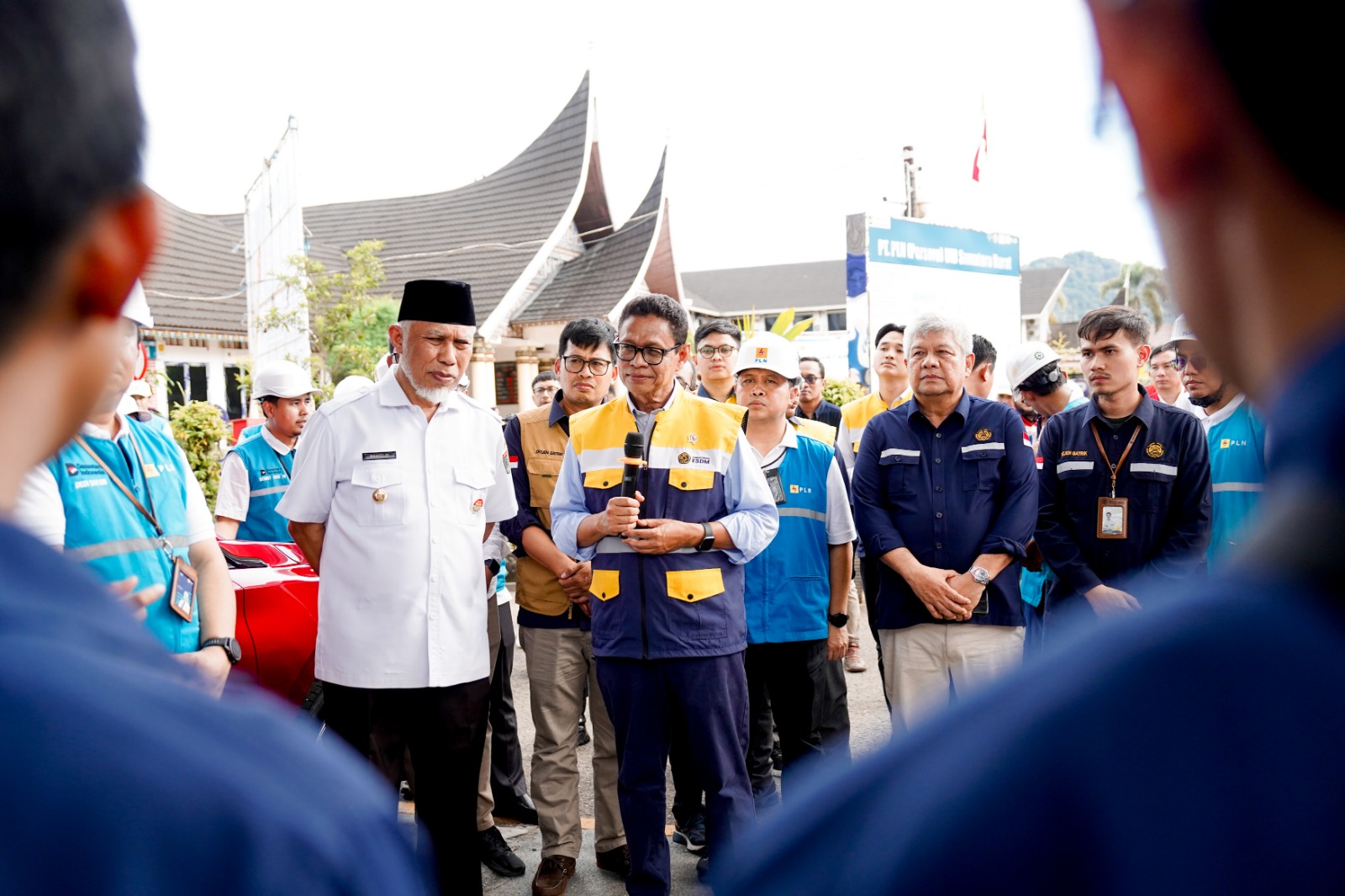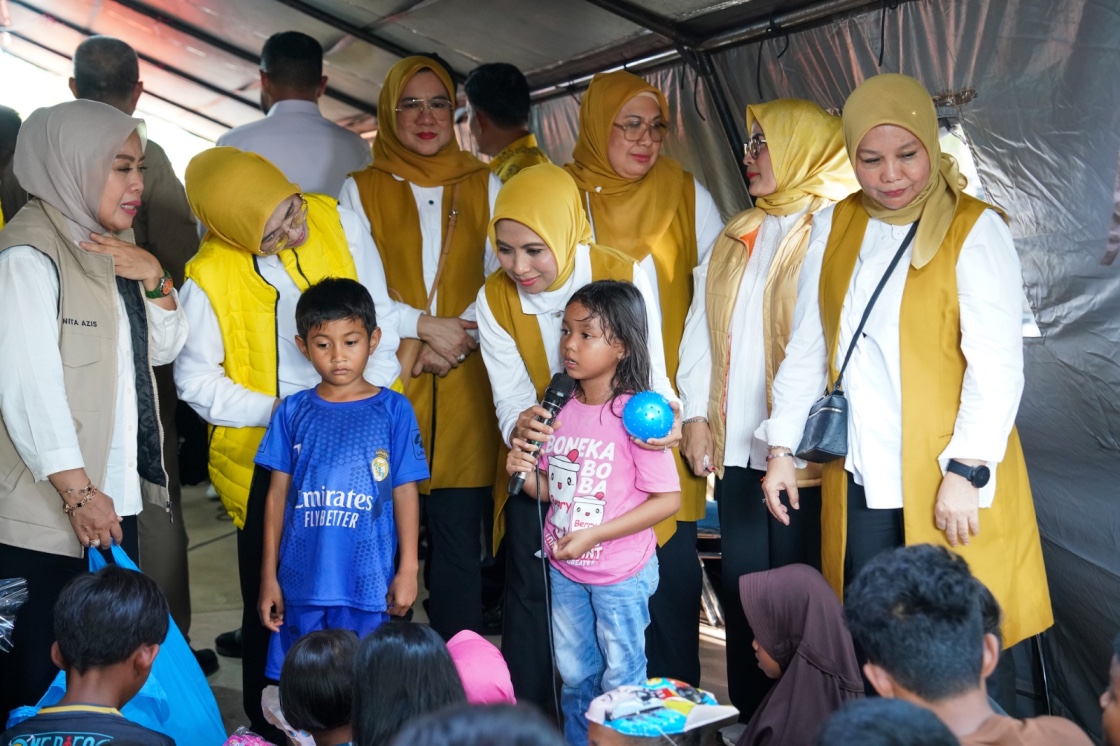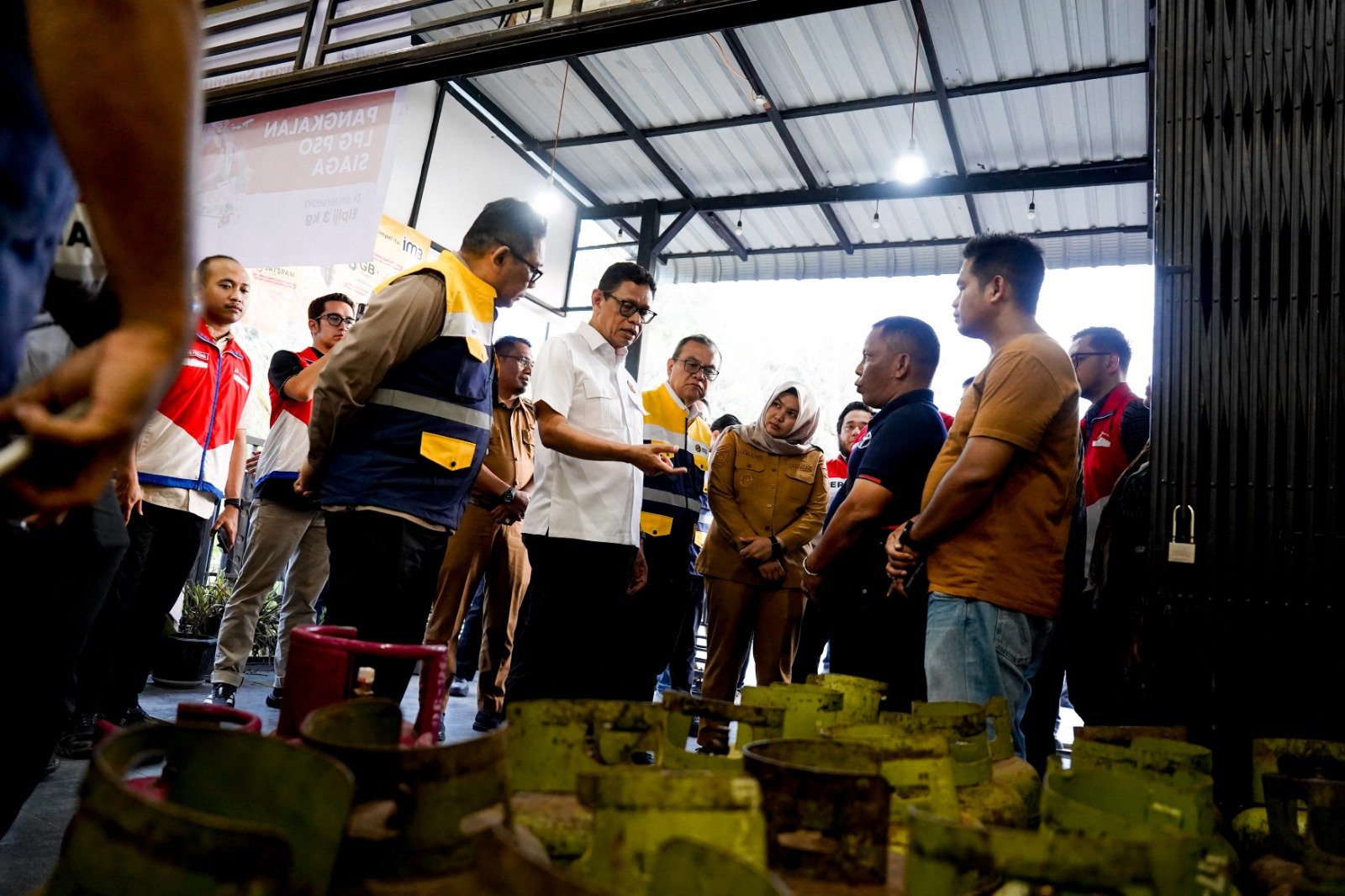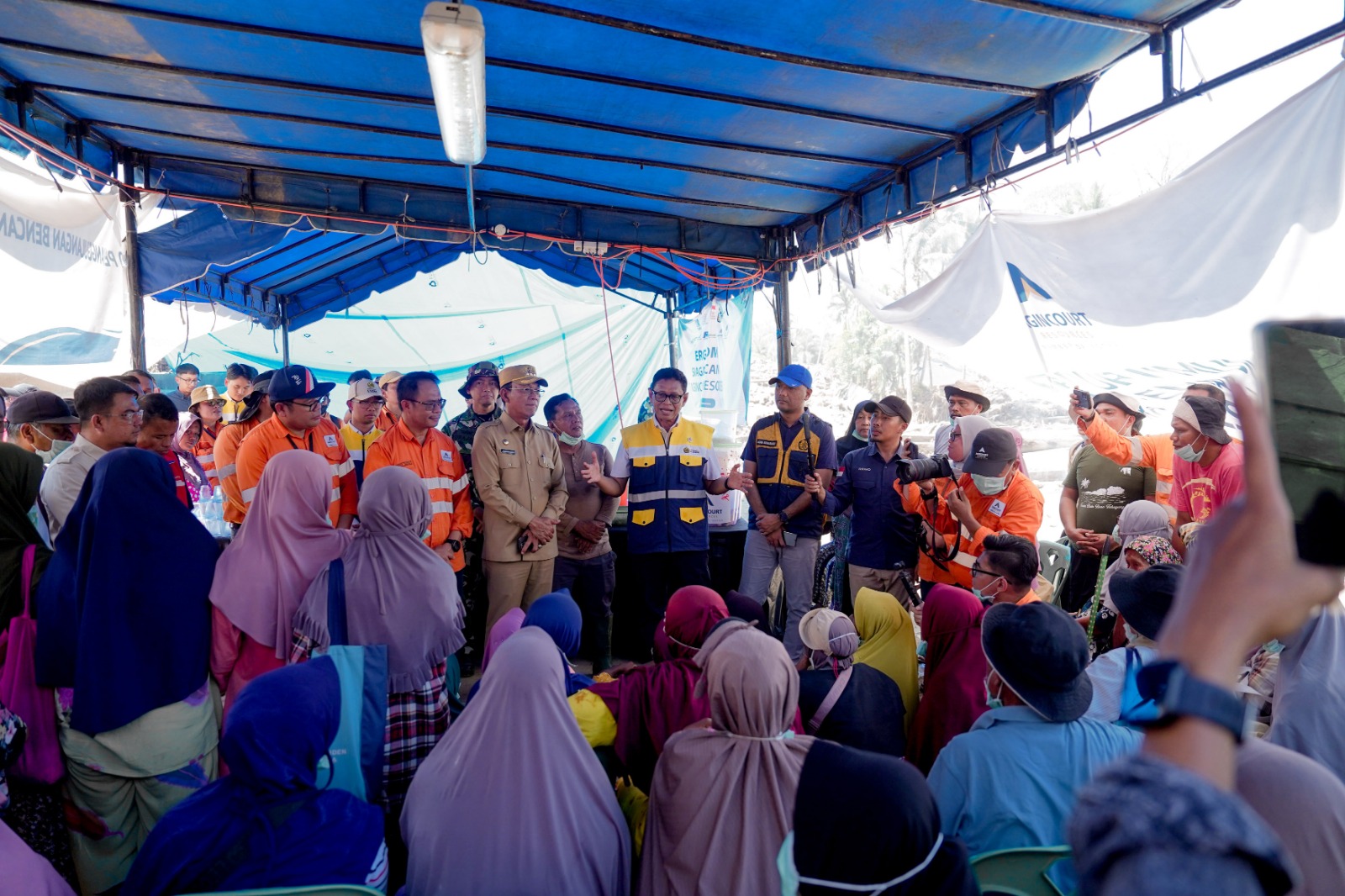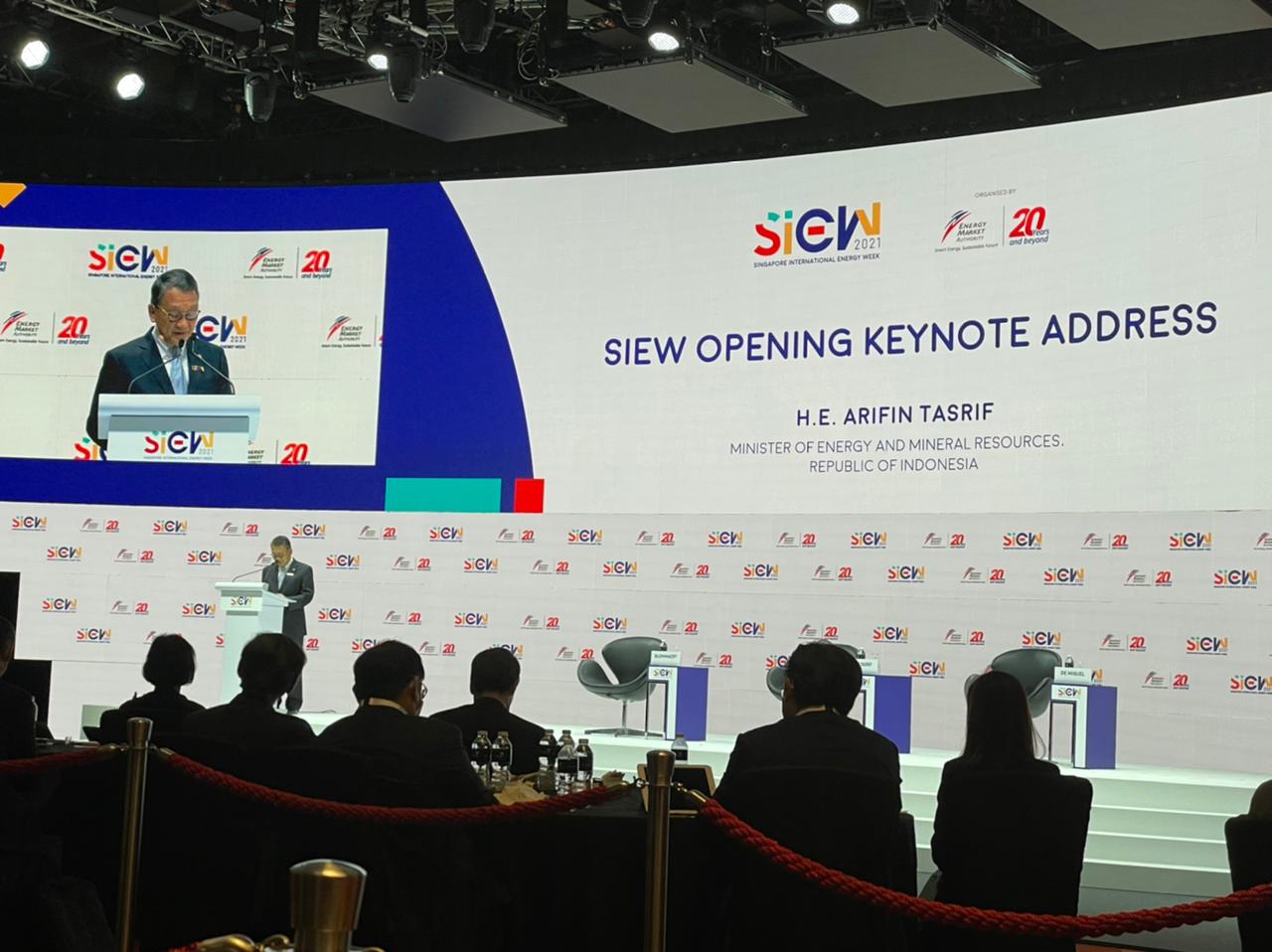
Energy Minister Calls Construction of ASEAN Power Grid Excellent Opportunity to Advance Renewables Utilization
MINISTRY OF ENERGY AND MINERAL RESOURCES
REPUBLIC OF INDONESIA
PRESS RELEASE
NUMBER: 375.Pers/04/SJI/2021
Date: 25 October 2021
Energy Minister Calls Construction of ASEAN Power Grid Excellent Opportunity to Advance Renewables Utilization
The construction of the ASEAN Power Grid, the electricity network infrastructure in the Southeast Asia region, is expected to help advance the utilization of new and renewable energy (NRE) in the region. The power grid will help meet the 35% target for installed renewables capacity in ASEAN by 2025.
Minister of Energy and Mineral Resources (EMR), Arifin Tasrif, said the target was in accordance with the ASEAN Plan of Action of Energy Cooperation (APAEC). "We can easily meet the target if there is a strong commitment from ASEAN members to jointly integrate strategies and initiatives to develop new, renewable energy. This commitment is a solid basis for a successful and sustainable energy transition in the future, and thus, is crucial for our future generations," said Arifin during the opening of the Singapore International Energy Week (SIEW) on Monday (25/10).
Energy technologies and information technology, continued Arifin, are important aspects that support energy utilization in the ASEAN region. "We really hope that in the future, ASEAN countries are interconnected through the ASEAN Power Grid. This way, we can build a regional economic area which is highly competitive in the fields of infrastructure development, energy cooperation, and information and communication technology (ICT), and one that work together towards net zero emission goal," Arifin said.
To date, there are several grid interconnection projects which are part of the ASEAN mechanism for renewable electricity export-import, for example the interconnection between Peninsular Malaysia-Singapore (Plentong-Woodlands); Thailand-Peninsular Malaysia (Sadao-Chupping, Khiong Ngae-Gurun), Indonesia-Malaysia (West Kalimantan-Sarawak), and Thailand-Laos. "I believe the cooperation between ASEAN member countries will be even stronger in the near future," added Arifin.
According to Arifin, the application of appropriate technologies are needed not only to maintain and improve reliability and efficiency of supply but also to integrate renewable energy and anticipate the intermittency nature of renewable energy such as solar and wind. "In addition to smart grids, we need smart meters and Battery Energy Storage System (BESS). Technology adoption affects power plant efficiency," said Arifin.
Smart grid technology will solve most challenges faced by power plants because smart grids will analyze power load and production. "There are 9 smart-grid projects that employ various technologies such as two-way communication, smart communication, smart microgrid, and Advanced Metering Infrastructure (AMI)," Arifin spelt out.
Arifin highlighted Indonesia's plan to develop a super grid called 'Nusantara Grid' from the year 2025. The idea has been based on the fact that as an archipelagic country, Indonesia must provide energy access to local communities. "The super grid also aims to overcome a mismatch between the place of renewable energy resources and the location of high electricity demand," Arifin explained.
Indonesia's Commitment and Solutions
Indonesia is committed to encouraging ASEAN countries to look for NRE sources to meet domestic needs, as shown by a plan to export solar-based electricity to Singapore to meet the country's electricity needs. "Indonesia will continue to support other ASEAN members in utilizing renewable energy or other energy for their respective domestic needs," Arifin asserted.
Through this collaboration, Indonesia hopes that availability, accessibility, affordability, and sustainability of energy can be achieved through technology, financial assistance, and capacity building. "We must work together to create a better, cleaner, and greener future for our young generation," added Arifin.
Solar power systems are projected to be the backbone of Indonesia's electricity system. Speaking on the intermittency issue, Arifin suggested a combination of storage, for example hydrogen production or the use of pumped storage during excess production by solar PV, which will help produce electricity during peak loads. This system is more efficient than using diesel fuel/gas during peak load.
"One of the technologies to overcome the intermittency problem which Indonesia is adopting is to develop a floating solar PV system side by side with a hydroelectric power plant. We are constructing this at the Cirata floating solar PV with a capacity of 145 MW, which is the largest floating solar PV in ASEAN," Arifin added.
The successful construction of the Cirata floating solar PV has prompted the Indonesian government to replicate the development in other 375 reservoirs and lakes with a total potential of around 28 Giga Watt.
In order to implement low-carbon energy projects, Arifin proposed several short-term policy solutions to ASEAN countries to create strong energy security. First, improve the generation system by using low-emission technologies. Second, avoid emissions by using CCS technology, and finally, support the development of renewable and clean energy.
Arifin also expected the involvement of the private sector and financial institutions to resolve the issue of financing NRE projects. In addition, Arifin emphasized the need for better policies and regulations to create a good investment climate through simplification and streamlining of regulatory framework.
In Indonesia, a ministerial regulation on rooftop solar systems was issued as an incentive for people to install rooftop solar. In addition, a policy on carbon tax is intended to control the increase in greenhouse gas emissions and change behaviors in economic activities that have the potential to produce greenhouse gas emissions. "Carbon cap & tax will be applied on a limited basis for coal-fired power plants starting on April 1, 2022," Arifin concluded. (IY)
Head of Bureau of Communication, Public Information Services, and Cooperation
Agung
Pribadi (08112213555)
Share This!

